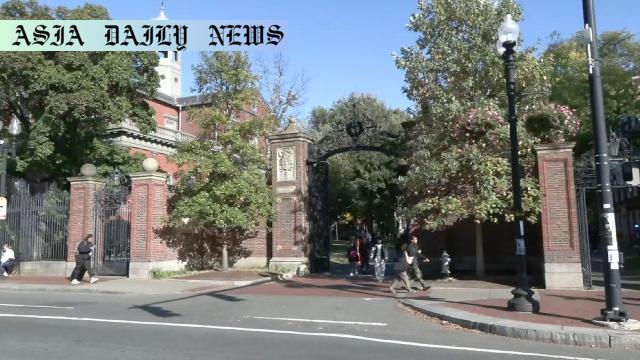Harvard rejects federal conditions, defends institutional values.
- Harvard denies federal conditions on funding tied to reforms.
- The university defends its institutional autonomy and values.
- Trump’s administration demands audits and policy changes.
- Columbia considers compliance, contrasting Harvard’s stance.

Harvard Denies Federal Conditions on Funding
Harvard University made headlines recently by rejecting conditions proposed by the Trump administration for continued access to federal funds. In a bold move, Harvard’s President, Alan Garber, articulated that the government’s demands for audits on faculty and student viewpoints, changes to student discipline policies, and the eradication of diversity, equity, and inclusion programs infringe on the autonomy of private educational institutions. Garber’s statement emphasized that such federal pressures not only threaten Harvard’s freedoms but also overstep the bounds of governmental authority.
The Specific Demands from the Trump Administration
The Trump administration, as part of a strategy to scrutinize elite academic institutions, sought to impose sweeping conditions on federal funding, valued at roughly $9 billion across multiple universities. These conditions were ostensibly framed to address concerns regarding alleged instances of harassment and bias. However, they mandated unprecedented oversight, including a review mechanism based on institutional policies. For Harvard, these measures posed significant challenges to academic freedom and institutional values.
Harvard’s Argument for Preserving Autonomy
Harvard’s leadership posits that allowing governmental influence to dictate the operations, hiring practices, and course content of private universities would endanger their role as independent centers of learning. Garber pointedly argued that no government should interfere with decisions about admissions or faculty appointments, areas that are core to a university’s identity and mission. Harvard’s refusal underscored a principled stance against federal overreach.
Implications for Academic Institutions
Harvard’s rejection carries potential repercussions for other academic institutions grappling with similar demands. While some, like Columbia University, appear more amenable to compromise in the interest of restoring funding, Harvard’s resolute response may inspire others to evaluate the long-term implications of acquiescing to federal requirements that potentially undermine institutional values and academic independence.
The Broader Political and Social Context
This clash between Harvard and the Trump administration highlights larger tensions around issues like free speech, equity, and the role of government in shaping educational policies. The ongoing discourse reflects concerns about whether federally imposed conditions, particularly those targeting diversity initiatives, are aimed at addressing genuine concerns or stifling progressive efforts within academia. The debate also raises critical questions about the politicization of federal funding mechanisms.
Final Thoughts
In an era where funding and autonomy frequently collide, Harvard’s stand represents a pivotal moment for academic institutions. By rejecting the proposed conditions, Harvard has reaffirmed its commitment to preserving its independence—a decision that will undoubtedly shape future dialogues about the balance of power between governments and educational institutions. Whether this decision will inspire solidarity among other universities or lead to increased funding threats remains to be seen, but it is clear that the conversation has only just begun.



Commentary
Harvard’s Stand: A Defense of Educational Autonomy
Harvard’s recent decision to reject the federal government’s conditions for funding marks a significant moment in the ongoing debate over the boundaries of governmental influence in higher education. This bold move not only showcases Harvard’s commitment to protecting its institutional values but also raises critical questions about the balance of power between private academia and public funding bodies.
The Risks of Governmental Overreach
The demands made by the Trump administration, which include viewpoint audits and the elimination of diversity programs, set a worrying precedent for government overreach. By attempting to dictate the affairs of a private institution, these measures encroach on the fundamental autonomy that allows universities to function as bastions of free thought and innovation. Harvard’s rejection is a powerful reminder that such interference could undermine the independence and diversity of perspectives that are vital to academia.
The Broader Impact on Higher Education
Harvard’s stance could influence how other universities respond to similar pressures. While Columbia University’s decision to consider compliance suggests that institutions have varying thresholds for resistance, Harvard’s firm response may provide a template for fighting against undue external influence. The case also signals the need for a broader conversation about the role of diversity initiatives and the potential pitfalls of politicizing educational policies.
A Pivotal Moment for Academia
In standing up to federal pressures, Harvard has reaffirmed its role as a leader in higher education. Its decision underscores the importance of safeguarding academic liberties, not just for its own student and faculty body but for the integrity of educational institutions everywhere. By challenging the proposed conditions, Harvard is setting a precedent that may resonate well beyond its campus gates, encouraging other institutions to prioritize principles over compliance.